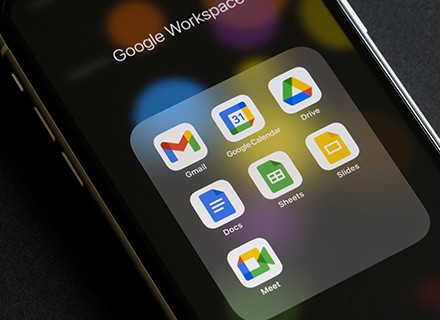Several AI-powered security capabilities are being added to Google Workspace as the search engine behemoth tries to assist businesses in tightening up their data protection processes.
Office software users will soon have access to “confidentiality-preserving AI models” that can categorize and tag both new and old files in the Drive. According to the newspaper, the tools are a continuous, automatic data loss prevention strategy that also enables users to update labels as they see fit.
The adjustments are part of Google’s broader attempt to enhance the security and effectiveness of its enterprise offering. Based on a person’s location and security level, organizations can now restrict who can share what. It was stated that these enhanced data loss prevention features would soon be accessible in Gmail.
Regulating The Encryption Keys
Client-side encryption (CSE) in the Gmail mobile app and a few other security features have also been added by the search engine Goliath for Workspace users.
Enterprise clients may now own and manage their encryption keys, ensuring that Google (or other third parties) cannot see the content being shared through these apps, a few months after making it freely available. This should be encouraging for businesses trying to abide by stringent national and international data protection laws.
The feature will first be accessible in Google Calendar, Gmail, and Meet. The CSE will be providing feedback on Docs soon. The addition of support for Microsoft Excel files is currently being tested.
Users will also have the option to store a copy of their Workspace data “in a country of their choice” and specify the physical location where the saved data will be processed.
For Gmail and Google Calendar, client-side encryption was initially introduced by Google in October 2021 at the Google Cloud Next event. Early mentions of the feature date back to 2014, so it appears to have been in development for some time. Late in 2023 February, it was initially made available to all individuals, and now Google is making it available to business clients.
Meanwhile, Google’s cloud unit, which reported a profit for the first time in 2023, has emerged as one of the company’s best bets for growth, as per the news reports.
More than half of venture-backed generative AI start-ups pay for Google’s cloud computing platform, Alphabet Inc., Google’s parent company. Of the start-ups valued at over USD 1 billion, 70% are Google Cloud customers, and about a third of those are helmed by former employees, including Anthropic, Character.ai and Cohere, the tech giant stated further. This development gives Google a way to extend its influence in the field even when it sheds talent.
Google’s cloud unit has emerged as one of the company’s best bets for growth as its core search business matures. Google still trails Amazon’s AWS and Microsoft’s Azure in the market. However, start-ups in the field of generative AI are increasingly turning to the company, said James Lee, Google Cloud’s general manager for start-ups and AI.
“We’re seeing strong momentum in our business, and we see Google Cloud as the preferred choice for startups building generative AI,” James Lee said in a Bloomberg interview.
“Google Cloud customers have the option to use AI models from Google itself as well as other companies, a degree of flexibility that appeals to startups,” the official stated further.
Alphabet Chief Executive Officer Sundar Pichai said earlier in 2023 that by his count, over 2,000 start-ups have been created by former employees.
“I think it’s a healthy part of how the ecosystem works,” Sundar Pichai further said.
Elemental Cognition CEO David Ferrucci told Bloomberg that Google has also been in the AI space for so long, as he believes that the team will “talk a common language” when discussing his company’s needs. Elemental uses Google Cloud exclusively.

